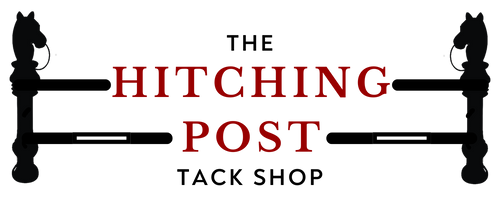
A Horse Owner's Basic Guide to First Aid Supplies
A first aid kit is an essential item for every horse owner. Accidents and injuries can happen at any time, and having a well-stocked first aid kit can help you provide immediate care to your horse before a veterinarian arrives. It is important to be prepared for any situation and have the necessary supplies on hand.
Basic Supplies for Your Equine First Aid Kit
1. Thermometer: A digital thermometer is crucial for monitoring your horse's temperature, which can indicate the presence of an infection or illness.
2. Bandages and Wraps: Include a variety of bandages, such as self-adhesive bandages, elastic bandages, and sterile gauze pads. These can be used to dress wounds and provide support to injured limbs.
3. Antiseptic Solution: An antiseptic solution, such as povidone-iodine or chlorhexidine, is necessary for cleaning wounds and preventing infection.
4. Scissors: Keep a pair of sharp scissors in your first aid kit for cutting bandages and removing hair from around wounds.
5. Disposable Gloves: It is important to protect yourself from potential infections, so always have a supply of disposable gloves in your kit.
6. Hoof Pick: A hoof pick is useful for removing debris from your horse's hooves and inspecting for any injuries or infections.
7. Saline Solution: Saline solution can be used to flush out wounds and eyes, providing gentle irrigation.
8. Sterile Eye Wash: In case of eye injuries or irritations, sterile eye wash can help clean and soothe the eyes.
9. Non-Stick Pads: Non-stick pads are ideal for covering wounds, as they do not stick to the skin and are easy to remove.
10. Veterinary Contact Information: Keep a list of emergency contact numbers for your veterinarian and nearby equine clinics.
Additional Supplies for Special Situations
1. Cold Compress: A cold compress can help reduce swelling and inflammation in case of injuries or strains.
2. Epsom Salt: Epsom salt can be used for soaking hooves or as a poultice for drawing out infections.
3. Digital Pulse Oximeter: This device measures the oxygen saturation levels in your horse's blood and can provide valuable information in emergency situations.
4. Stethoscope: A stethoscope allows you to listen to your horse's heart and lung sounds, helping you assess their overall health.
5. Oral Electrolytes: Oral electrolytes can be administered to horses to prevent dehydration in case of illness or strenuous exercise.
Regularly Check and Restock Your First Aid Kit
It is important to regularly check your equine first aid kit and restock any used or expired items. Ensure that all medications are within their expiration dates and that sterile items remain sealed until needed. Additionally, familiarize yourself with the proper use of each item in your kit to provide effective care when it matters most.
Remember, a well-prepared equine first aid kit can make a significant difference in the outcome of an emergency situation. Stay informed, stay prepared, and prioritize the health and well-being of your horse.

Leave a comment